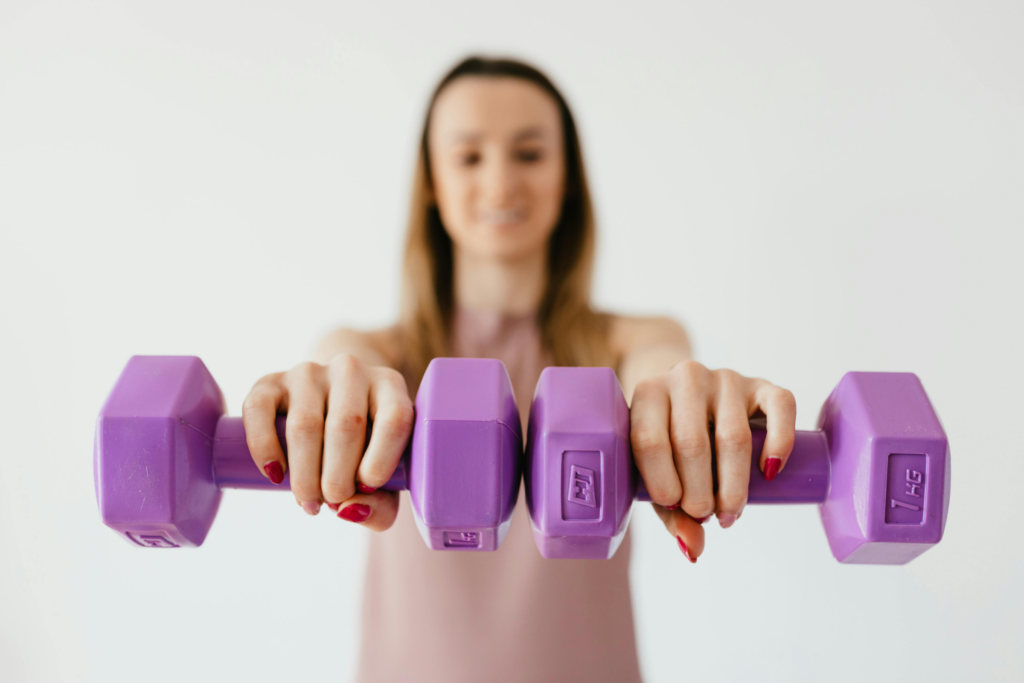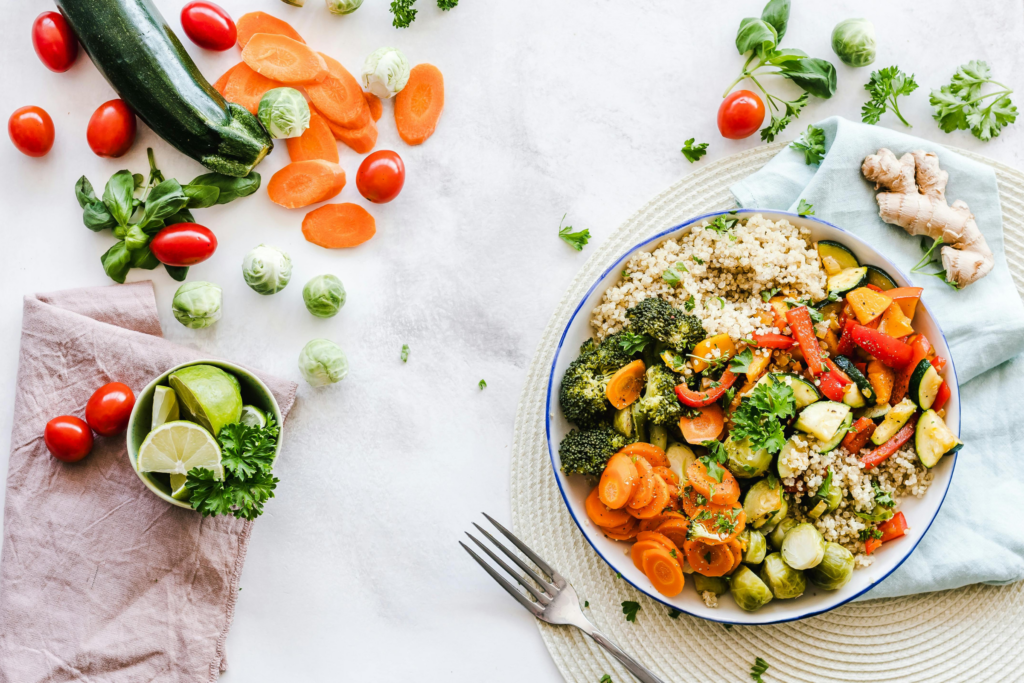Health
4 expert-approved strategies to bounce back after illness
After Covid or any other nasty virus, the journey back to full health can take longer than expected. Lingering fatigue, breathlessness and brain fog are all commonly cited problems during the days, weeks and (in some cases) months that follow more immediate viral symptoms.
Here, leading experts explain what we can do to support our recovery – from gentle exercise to anti-inflammatory nutrition and a spot of self-compassion.
4 expert-approved strategies to bounce back after illness
Less is more

Michael Garry, personal trainer, says:
“Coronavirus is a respiratory disease. In mild cases, this means our lungs and airways become inflamed, but the virus can also inflame our alveoli, the small air sacs that take in the oxygen as we breathe. This can leave us feeling breathless as we return to exercise. If we’ve spent lots of time indoors recovering, it’s tempting to hit our workouts at full pace, but this can be counter-productive. I’d advise keeping away from aerobic exercise (such as running or cycling) for a minimum of two weeks. These can irritate an already struggling respiratory system and hinder recovery.
“Instead, focus on anaerobic exercises that predominately use glucose (and not oxygen) for fuel. These include short bursts of exercise, such as running for 10 seconds (at 60-70% of your maximum capacity) interspersed with periods of walking for recovery. You can also skip for short bursts of ten to 20 seconds. Strength training can also be anaerobic – just be sure to focus on strength rather than getting your heart rate up. I’d recommend keeping sets to between six to 10 repetitions. This will stimulate your muscles and maintain strength without putting undue stress on your lungs.
“I also recommend that clients cut back on their workouts and aim for just two a week, with plenty of time for rest and recovery in between (Monday and Friday, for example). Training in the morning is another useful strategy, as this is the time we tend to have the most energy.
“Be guided by how you feel as you return to a regular schedule. I have clients who recover in a few weeks, others that need six to eight weeks at reduced capacity, and others that need a slower pace for up to six months. Be patient.”
Beat brain fog

Professor James Goodwin, Director of Science and Research Impact at Brain Health Network, says:
“People recovering from Covid often suffer from brain fog, with a sluggish feeling similar to the effects of sleep deprivation or stress. This is because the virus causes damage to the mitochondria in our brain cells, which account for 95% of our energy for all bodily functions. There are research-backed ways we can combat this.
“First, lower your calorie intake (but not your intake of nutrients). Aim for a reduction of about 10%. This will reduce the output of reactive oxygen species, which drive inflammation and cellular damage.
“Next, where possible, avoid a sugar rush. Astonishingly, certain neurons in the brain can actually feel a sudden rise in sugar levels, and their mitochondria rapidly change shape and structure. Lowering the consumption of refined carbohydrates and sugars removes this pressure on our precious mitochondria.
“Visiting a sauna can also help. Research has shown that increasing the temperature of muscle tissue increases the efficiency of mitochondria. For best results, try it two or three times a week for 10 to 15 minutes at a time.
“Quality sleep is key to recovering from any illness. Hormones such as corticosteroids, which regulate our mitochondria, are extremely sensitive to disruption from poor sleep. Relaxation and meditation can also play a part in keeping our mitochondria healthy, reducing the effects of the stress hormone cortisol.”
Eat well

Jane Clarke, dietician and chef, says:
“It’s an old-fashioned term, but I believe convalescence is essential after illness, and eating gently nourishing foods is a key part of this.
“Viruses and infections have been shown to cause inflammation. Nourishing our body with anti-inflammatory ingredients and avoiding foods that are known to trigger inflammation can support our body during recovery. As much as you can, avoid ultra-processed foods. This includes industrial-made bread and pastries, ready meals, breakfast cereals, sausages and reconstituted meat products. Biscuits, pastries and cakes, soft drinks, crisps, salted and sugared nuts are also ultra-processed. Eat a rainbow of fresh fruits and vegetables every day, as the antioxidants they contain help to repair damaged cells.
“Try to focus on healthy fats by eating one to two portions of oily fish a week and snacking on unsalted nuts and seeds. This will boost levels of omega-3 essential fatty acids. This have been shown to reduce inflammation, protect the heart and improve mental health.
“Sugar is also associated with inflammation. If you want to enjoy a sweet treat, eating it after a main meal will help to slow the release of sugar into the bloodstream and dampen the inflammatory response.
“If you’re struggling with a loss of appetite, it’s important to try and eat something. Keep mealtimes simple with toasted sourdough. If you can manage some fruit and vegetables, and a few sources of protein as well, that is a real plus.”
Stress less

Tasha Bailey, psychotherapist, says:
“Being ill can impact our mental health in a few ways. It can leave us feeling low, vulnerable and lonely. We may also experience anxiety as we consider the responsibilities waiting for us. As overdue work and postponed social engagements pile up, we must resist the temptation to dive back in too quickly. Stress weakens our immune system, since it decreases the amount of white blood cells needed to fight off illnesses. When we quickly pick up the stresses that were left behind in our absence, we are essentially slowing down our recovery.
“In order to slowly return to normality, we may need to set expectations and boundaries with our manager or colleagues, so that they don’t throw everything onto our desk on our first day back. It’s also wise to resist the urge to compete with the healthiest version of ourselves. It will take a little while before we can go back to our usual pace. It’s normal to feel frustrated but, just like we would treat a friend, we have to treat our bodies with patience and gratitude. We can practice this by finding ways to say thank you to our body for carrying us through illness. This might be verbal or might look like giving ourselves lots of nutritious food or treating ourselves to a self-care routine.
“After a period of illness, we can also take time to reflect on our pace of life more generally, considering whether we want to make adjustments moving forward. If we feel that taking on too much contributed to our illness, it might be time to reassess our lifestyle.”





